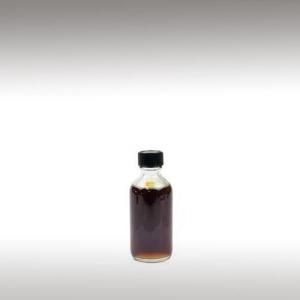
VITAMIN E OIL (D-ALPHA TOCOPHEROL) - INGREDIENTS

BASE / GENERAL DATA
Information submited: June 30, 2015 Modified: June 4, 2018 By: OperaDreamhouse
Vitamin E is a Vitamin that dissolves in fat. It is found in many foods including vegetable oils, cereals, meat, poultry, eggs, fruits, vegetables, and wheat Germ oil. It is also available as a supplement.
Vitamin E was discovered in 1922 by Herbert McLean Evans and Katharine Scott Bishop and first isolated in a pure form by Gladys Anderson Emerson in 1935 at the University of California, Berkeley. Erhard Fernholz elucidated its structure in 1938 and shortly afterwards the same year, Paul Karrer and his team first synthesized it.
Vitamin E (Tocopherol) activity was first identified in 1936 from a dietary fertility factor in rats, it was given the name "Tocopherol" from the Greek words "Tókos", birth, and "Phérein", to bear or carry meaning in sum "to Carry a Pregnancy", with the ending "-ol" signifying its status as a chemical alcohol.
The first use for Vitamin E as a therapeutic agent was conducted in 1938 by Widenbauer, who used wheat Germ oil supplement on 17 premature newborn infants suffering from growth failure.
Vitamin E oil is obtained by vacuum distillation of vegetable fats derived from non-GMO Soy, Wheat Germ sources.
Naturally occurring Vitamin E exists in eight chemical forms (alpha-, beta-, gamma-, and delta-Tocopherol and alpha-, beta-, gamma-, and delta - Tocotrienol) that have varying levels of biologicalactivity.
Vitamin E was discovered in 1922 by Herbert McLean Evans and Katharine Scott Bishop and first isolated in a pure form by Gladys Anderson Emerson in 1935 at the University of California, Berkeley. Erhard Fernholz elucidated its structure in 1938 and shortly afterwards the same year, Paul Karrer and his team first synthesized it.
Vitamin E (Tocopherol) activity was first identified in 1936 from a dietary fertility factor in rats, it was given the name "Tocopherol" from the Greek words "Tókos", birth, and "Phérein", to bear or carry meaning in sum "to Carry a Pregnancy", with the ending "-ol" signifying its status as a chemical alcohol.
The first use for Vitamin E as a therapeutic agent was conducted in 1938 by Widenbauer, who used wheat Germ oil supplement on 17 premature newborn infants suffering from growth failure.
Vitamin E oil is obtained by vacuum distillation of vegetable fats derived from non-GMO Soy, Wheat Germ sources.
Naturally occurring Vitamin E exists in eight chemical forms (alpha-, beta-, gamma-, and delta-Tocopherol and alpha-, beta-, gamma-, and delta - Tocotrienol) that have varying levels of biologicalactivity.
Alpha- (or α-) Tocopherol is the only form that is recognized to meet human requirements.
A natural D-Mixed Tocopherol which is a mixture of all the natural Vitamin E isomers not just the alphatocopherol. It offers a very good balance of suitability for use as a skin conditioning agent and also as an antioxidant in oil phase products.
Chemical structure:
Total Tocopherol Content (Mixed): 18 - 20%
D Alpha Tocopherol: 9 -10%
D Beta and Gamma Tocopherol: 49 - 53%
D Delta Tocopherol: 38 - 42%
Sterols: 9,5%
Squalene: 4,7%
Monoglycerides: 19,5%
Chemical structure:
Total Tocopherol Content (Mixed): 18 - 20%
D Alpha Tocopherol: 9 -10%
D Beta and Gamma Tocopherol: 49 - 53%
D Delta Tocopherol: 38 - 42%
Sterols: 9,5%
Squalene: 4,7%
Monoglycerides: 19,5%

SPIRITUAL PRACTISES DATA

MEDICINE / HEALTH DATA

BEAUTY / COSMETICS DATA

FOOD / COOKING DATA
COMMENTS
No comments.


